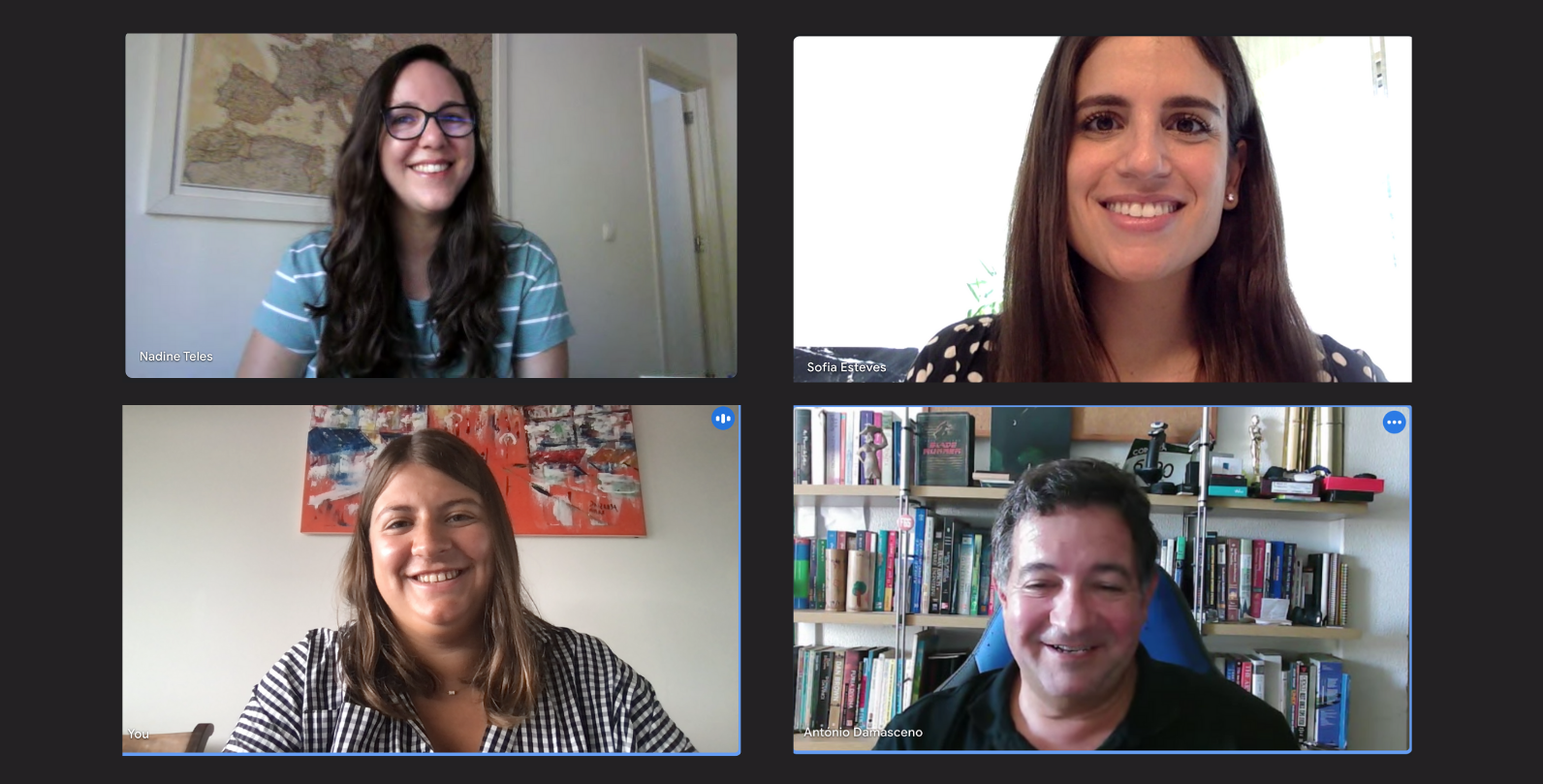For more than 2 years, F6S has been a key member of the M-Sec consortium, supporting the communication and dissemination of a technology that intends to support our cities to become smarter and, at the same time, more cyber secure. Meet the team and work behind F6S, their role in the M-Sec Project and where will they go next
We spoke with Nadine Teles, EU Projects Manager, to know more about F6S‘s role in the Project.
1. Nadine, thank you so much for agreeing with this interview. Please briefly present yourself and the institution you work at.
My name is Nadine Teles, and I am EU Projects Manager at F6S. Previously, I used to work for the Portuguese National Innovation Agency, supporting the implementation of science, technology and tech transfer policies promoted by the Portuguese Government, based on European and international experience from other sister innovation agencies.
As a community builder and services provider, F6S has become the largest startup/SME community globally with over 3.5 million users (entrepreneurs, founders, investors, etc.), thus being very much experienced in animating the innovators network.
F6S delivers more than €2 billion every year to startups and SMEs, with the leading CRM for deal flow, corporate challenges, structured programmes, startup services, corporate partnering, recruiting, government grants and free startup resources. F6S is also the leading platform for application management for commercial, corporate, government, university, and other accelerator programmes, helping more than 17.000 such initiatives worldwide.
F6S has also experience in managing and implementing H2020 projects in innovation, startup/SME growth, market and investment readiness, community building and other more specific areas.
2. Why have you and F6S decided to join the M-Sec Project?
By joining the M-Sec Project, F6S was hoping to use the project results to provide additional value for its community and build new services/features that enabled the scaleup of its users.
F6S is a global community but it does not know in full detail all markets by heart – working alongside Japan, getting to know more about their scientific and business culture, and have more insights on their support to research and innovation gave us more understanding of that country and market, to one day be able to develop services/features for that community of innovative researchers, entrepreneurs and startups.
Moreover, we cannot forget that Japan is an extraordinary example in the smart cities’ world. Alongside relevant public policies, the country’s blooming research and innovation activities are something to closely watch in the next couple of years, and to learn from.
3. Can you also present the team that works with you for the M-Sec Project?
We are a team of several EU Project Managers and Communication Managers with a long track record of implementing EU Projects that support tech startups/SMEs all around Europe and we always give our best to support science & innovation in Europe through these projects, which we believe can make a difference in the EU startups/SMEs supporting landscape. Currently working at M-Sec is a team composed by me and my colleagues Sofia Esteves, António Damasceno and Inês Melo e Faro, but many more work every day in the Backoffice to make M-Sec as successful and as impactful as possible.
4. What has been the main role of F6S at the M-Sec Project and have you been able to achieve all you have set for? What were your and your team’s main challenges?
F6S is the Dissemination and Community Manager in the EU side, leading WP5 “GDPR, dissemination, exploitation and sustainability†activities, and aiming at coordinating the communication and dissemination activities at project and partner levels, actively promote the project activities, disseminate the project outcomes to the target audiences and attract new stakeholders, support the engagement with the target audiences, organise the M-Sec online contest, and build the M-Sec community.
Of course, we do all these activities in close collaboration and engagement with the Japanese partners, namely with NTTDMC (leader of WP5 from the Japanese side), Keio University (Japanese Community Manager and leader of Task 5.4 Community Engagement Activities) and NTTE (leader of Task 5.1 Dissemination and Communication Activities from the Japanese side).
Over the last 3 years, and in close cooperation with all the partners, F6S has been able to smoothly run all foreseen dissemination and communication activities, at project and partners levels. For example, disseminate the M-Sec technical and overall results and benefits through blogposts, the website, events, and social media, supporting partners to engage with a network of relevant stakeholders and coordinating the dissemination of the results in scientific papers and conferences, among others.
although F6S is still in the process of currently running M-Sec Online Contest and communication activities will continue until the end of the project, with a clear focus on disseminating the project’s results.
The main challenge we have faced, as the partner in charge of the project’s dissemination and communication activities, was trying to transform a very technical project and research in something more relatable for the common citizen. As experts in communicating science & innovation achievements, we know that sometimes it is quite challenging for a research-focused project to explain its main developments and outcomes, and the actual impacts in society. Therefore, over the past almost 3 years we have been very much focused on finding the best communication strategies to explain in the easiest and more understandable way what M-Sec is all about and how it can have an impact on society, on hyper-connected smart cities and in each individual citizen.
It has also been a very enriching challenge to work alongside Japanese partners, as this was F6S’s first experience in an EU Project – we not only got to know different people, but also got in touch with a different business culture, that gave us much more knowledge and insights, and we cannot wait for more projects to appear in the near future in which we have the chance to work again alongside our Japanese colleagues.
5. Looking back on what you and your team have done in the scope of the M-Sec Project, what are your main takeaways?
I believe that F6S learned a lot about better communicating a research-based project, trying to clearly explain to citizens and other stakeholders the impacts in their daily lives of what was being developed by the project’s technical partners. This is something that we will take with us and for sure implement in other projects’ communication strategies, to increase the impact and visibility of the projects’ results. It was also important for us to be part of a large consortium and get in touch with so many different partners, from universities to SMEs and research institutes, and be subject to cultural differences, and we believe that helped us grow a lot individually and professionally.
6. With only a few months until the end of the project, on what major developments do you and your team still need to focus? Do you feel confident?
F6S is in the process of running the M-Sec Online Contest, which will be organized in the 1st week of September, with applications closing on the 26th of August. Moreover, during the next weeks we will continue to run several communication activities which are foreseen until the end of the project, with a clear focus on the dissemination of the project results. But we feel confident that by the end of September we will have good results to present and be proud off and a dissemination and communication strategy has been drafted, in cooperation with other partners, to also continue to disseminate the M-Sec project once it ends.
7. Did you find this experience of participating in an EU-JP partnership rewarding?
Of course, extremely. This was the first time for the entire F6S team participating in an EU-Japan collaborative project. We believe that it is always rewarding to work alongside new partners and get in touch with new cultures, such was the case of Japan and of Japanese partners. As it was a very research-focused project, we were also able to closely follow the research and development part of a technology being created and designed, and always tried to pay careful attention to fully understand the technical details and their impacts when implemented in smart cities and used by citizens and other stakeholders. As we normally do not partake in such technological development – on the contrary, we support it (through funding/grants or mentoring/accelerators), it was a learning experience for F6S.
Based on the good relations F6S had with the other project partners during the project’s implementation, F6S expects an openness to potential future collaborations that may complement the value proposition developed by M-Sec and take advantage of F6S access to a global community of tech startups, entrepreneurs, investors, etc.
Moreover, with the engagement in an EU-Japan collaborative project, and this being the first time, F6S expects to gain cultural knowledge and proximity with Japan, which can further allow to communicate easier and more adequately the value of the F6S platform to Japanese companies, municipalities, Universities, and tech transfer offices, and therefore foster corporate innovation and connections between innovators, researchers, corporates, and cities.


